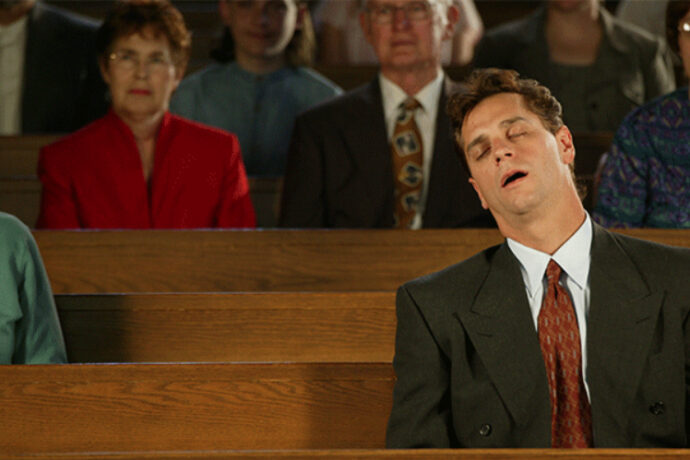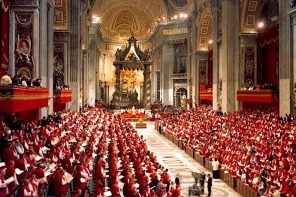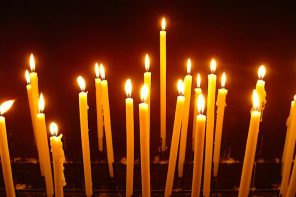For all the ink that has been spilled in the last few years over the historic family synods convened by Pope Francis—as well as general prognosticating over the direction he will take Catholic teaching in, one would think that Catholics are waiting with bated breath to hear what the pope has to say. But does what the pope says or the church teaches actually matter to Catholics when they are making moral decisions? According to a new Pew Poll, not so much.
According to the poll, Catholics are most likely to look to their own consciences when making difficult moral decision. Nearly three-quarters of all Catholics say they look to their own consciences “a great deal” for guidance on difficult moral questions. By comparison, only one in five look to church teachings a great deal and only about ten percent look to the pope.
Catholicism has long taught that individuals have a sacred obligation to follow their consciences. Vatican II’s Gaudium et Spes declared conscience “man’s most secret core, and his sanctuary.” While Catholics are always supposed to “pay careful attention to the sacred and certain teaching of the Church” (Dignitaries Humanae), in recent decades many members of the Catholic hierarchy have suggested that teaching trumps conscience, especially on difficult issues like abortion.
In Veritatis Splendor, Pope John Paul II complained:
Conscience is no longer considered in its primordial reality as an act of a person’s intelligence, the function of which is to apply the universal knowledge of the good in a specific situation and thus to express a judgment about the right conduct to be chosen here and now. Instead, there is a tendency to grant to the individual conscience the prerogative of independently determining the criteria of good and evil and then acting accordingly.
These differing views of what “conscience” means may explain why the poll found that highly religious Catholics (which Pew defines as those who pray everyday and attend church at least once a week) are just as likely as all Catholics to say their look to their own consciences for moral guidance.
The poll did find that Catholics who are highly religious are more likely to look to Catholic teaching and the pope for moral guidance. Twice as many highly religious Catholics (44%) look to church teaching versus all Catholics, while just under one-third (29%) look to the pope, which may speak more to how conservative Catholics view this particular pope’s moral authority than the weight they give the authority of the pope in general.
Combined with the 43% of highly religious Catholics who say they look to the pope somewhat for moral guidance, just under three-quarters of highly religious Catholics say the pope has any impact on their moral decision making, versus just four in ten of all Catholics.
Francis himself has recently underlined the primacy of conscience for Catholics. In Amoris Laetitia, he spoke about the need for Catholics to follow their own consciences. “We have been called to form consciences, not replace to them,” he said of the church’s teaching.
Now that it’s clear that Catholics aren’t hanging on Pope Francis’ every word, maybe it’s time for the media to do the same.





